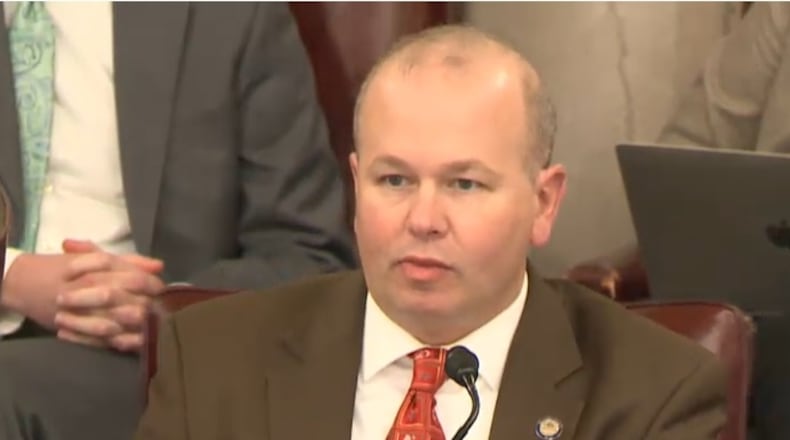Substitute Senate Bill 178, which would decrease the power of the state superintendent and board of education, and increase focus on career technical education, passed the full Ohio Senate largely on party lines, with Republicans in support. It is unclear whether the Ohio House will consider the bill in the next two weeks or let it die.
“While we support the elevation of career technical education and opportunities for students, we have significant concerns about the restructuring of the roles of the State Board of Education and the superintendent of public instruction included in the bill,” said Ohio School Board Association’s legislation director, Jennifer Hogue.
Instead of creating two separate departments, why not make the division within the Ohio Department of Education, Hogue suggested. She also argued the bill should require all members of the state board of education to be elected. Currently, 11 members are elected and eight are appointed.
The Buckeye Institute, a conservative think tank, testified in favor of the bill, saying the bill would help fix some of the issues the Ohio Department of Education is dealing with, including the current lack of a Ohio state superintendent.
“The board’s distractions are particularly worrisome in the wake of historically poor performance and academic decline following the COVID school closures,” Greg Lawson, executive director of the Buckeye Institute, said.
The legislature’s discussion about revamping the board of education picked up steam after the most recent election, when multiple Democratic candidates defeated conservative candidates.
Other pending bills
House Bill 151 includes multiple, unrelated provisions. One part deals with how teachers can be certified, but the section getting more attention requires single-sex student sports teams in Ohio’s public K-12 schools. It came out of committee with an amendment saying the students’ sex is determined by birth certificate. The bill has already passed the Ohio House.
Critics of the bill have attacked the single-sex student sports team part, saying the requirement to have single-sex sports teams would prevent transgender athletes from participating. Currently, the Ohio High School Athletics Association allows students to play sports with the team that matches their gender identity. If the bill passes, transgender athletes in Ohio who are currently playing on sports teams will no longer be able to play.
But it’s not the only popular bill to reform teacher licenses expected to get additional amendments.
House Bill 554 would make it easier for anyone with an expired teaching license to come back into the field, a popular bill given teacher shortages in some regions and academic areas. OSBA, along with the Buckeye Association of School Administrators, the Ohio Association of School Business Officials, the Ohio Association of Secondary School Administrators, the Ohio Association of Elementary School Administrators and the Alliance for High Quality Education testified in support of the bill.
Brenner said the bill is likely to become an omnibus bill, where other education changes and various allocations of money will be put.
Other legislation on schools this session include:
- House Bill 458, which would eliminate the August election. Some schools use that election cycle to pass tax levies, though the date is less popular because few people vote in August.
- House Bill 462, which would make “swatting,” when someone makes a fake threat against a school district and forces the school to shut down and police to be called, a third-degree felony.
- Senate Bill 356, which would increase the age of developmental delay to cover ages 3 to 9, instead of 3 to 5, as is current law.
- House Bill 497, which allows students who do not pass the third-grade reading test to continue to fourth grade instead of being held back, as is current law.
About the Author

